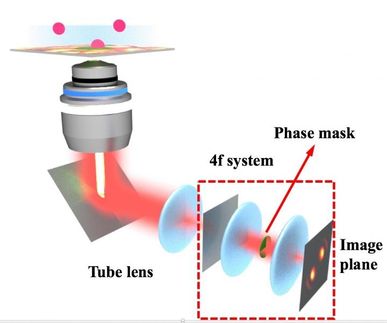Carl Zeiss Obtains Licence from University of California for Illumination Technique
Carl Zeiss has received a licence from the University of California in San Francisco (UCSF) for the commercialization of “Multidirectional Selective Plane Illumination Microscopy” (mSPIM), an advanced illumination technique for light sheet fluorescence microscopy.
Light sheet fluorescence microscopy is a relatively new application of the concept of light sheet illumination in biology and the life sciences. It is ideally suited for live imaging of up to millimeter sized fluorescently labeled specimens for days under certain physiological conditions and with minimum photo-induced damage.
The mSPIM technique was developed by Dr. Jan Huisken at the UCSF. It reduces absorption and scattering artifacts and provides an evenly illuminated focal plane. By alternating illumination of the sample from multiple sides, mSPIM overcomes two common problems in light sheet imaging techniques: shadowing effects in the excitation path and spreading of the light sheet by scattering in the sample.
The agreement grants Carl Zeiss the right to integrate the mSPIM technology in its microscopy systems. The first commercial light sheet fluorescence microscope (LSFM, also known as “selective plane illumination microscope” or “SPIM”) for multidimensional, ultrafast and long- term timelapse imaging of live specimens is currently being developed at Carl Zeiss in Germany.
Most read news
Topics
Organizations
Other news from the department business & finance

Get the analytics and lab tech industry in your inbox
By submitting this form you agree that LUMITOS AG will send you the newsletter(s) selected above by email. Your data will not be passed on to third parties. Your data will be stored and processed in accordance with our data protection regulations. LUMITOS may contact you by email for the purpose of advertising or market and opinion surveys. You can revoke your consent at any time without giving reasons to LUMITOS AG, Ernst-Augustin-Str. 2, 12489 Berlin, Germany or by e-mail at revoke@lumitos.com with effect for the future. In addition, each email contains a link to unsubscribe from the corresponding newsletter.
Most read news
More news from our other portals
See the theme worlds for related content
Topic world Fluorescence microscopy
Fluorescence microscopy has revolutionized life sciences, biotechnology and pharmaceuticals. With its ability to visualize specific molecules and structures in cells and tissues through fluorescent markers, it offers unique insights at the molecular and cellular level. With its high sensitivity and resolution, fluorescence microscopy facilitates the understanding of complex biological processes and drives innovation in therapy and diagnostics.

Topic world Fluorescence microscopy
Fluorescence microscopy has revolutionized life sciences, biotechnology and pharmaceuticals. With its ability to visualize specific molecules and structures in cells and tissues through fluorescent markers, it offers unique insights at the molecular and cellular level. With its high sensitivity and resolution, fluorescence microscopy facilitates the understanding of complex biological processes and drives innovation in therapy and diagnostics.























































